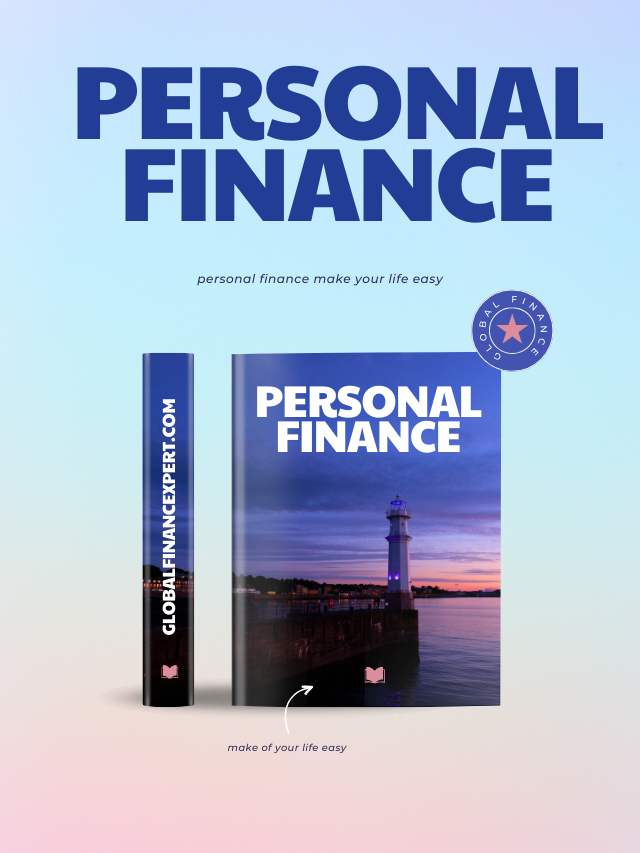
In the ever-evolving landscape of personal finance, knowledge is key to unlocking financial freedom and security. Fortunately, there’s a wealth of wisdom available in the form of personal finance books, each offering unique insights and strategies. If you’re ready to take control of your financial destiny, here’s a curated list of some of the best personal finance books in the US that can guide you on your journey to financial success.
1. “The Total Money Makeover” by Dave Ramsey:
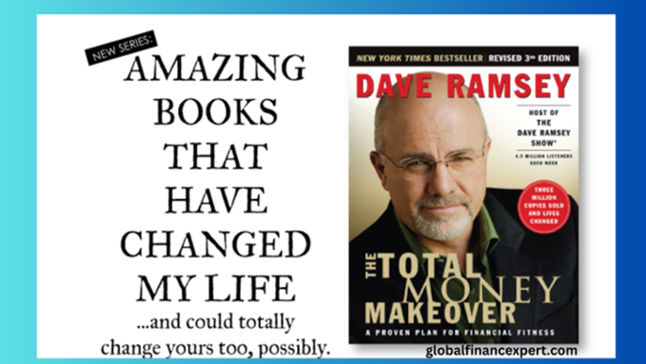
Dave Ramsey’s “The Total Money Makeover” is a cornerstone in the world of personal finance literature. With a no-nonsense approach, Ramsey provides a step-by-step guide to escaping debt, building an emergency fund, and creating a sustainable financial plan. His actionable advice has helped countless individuals transform their financial situations.
FAQs
The main point of the book is when Dave talks about his baby steps. He calls them baby steps, because he compares getting out of debt to eating an elephant. The only way to eat an elephant is one bite at a time. Similarly, the only way to get out of debt is one step at a time. Dave has seven baby steps and explains each baby step in depth.
Baby Step 1
Build a starter emergency fund. This emergency fund is used whenever unexpected expenses come up during the getting out of debt process. This account can be no more than $1,000.
Baby Step 2
Use the debt snowball to get out of debt. The debt snowball is when you place all debts in order from least to greatest in value and pay them off with gazelle intensity.
Baby Step 3
Build up a 3-6 month emergency fund. After getting out of debt, Dave wants to make sure that everyone has built up enough savings to handle any emergency. This account should be 3-6 months worth of expenses. The amount of months depends on job stability and how many incomes in the house.
Baby Step 4
Invest in college fund. There is no amount or percent placed on this step, because all people are at different steps in their lives and some people may need to put more in college funds depending on how soon their children will be attending college.
2. “Your Money or Your Life” by Vicki Robin and Joe Dominguez:
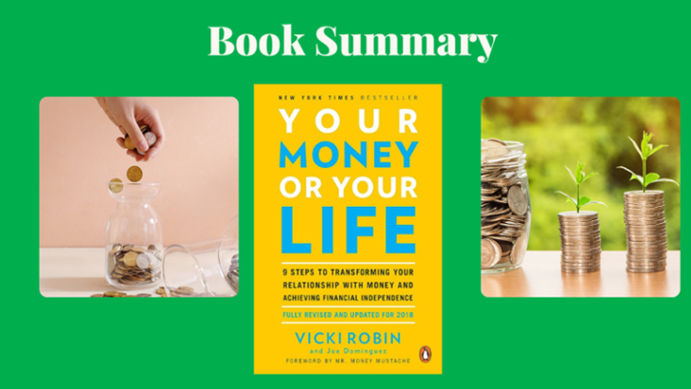
For those seeking a deeper connection between their life and their finances, “Your Money or Your Life” is a must-read. Robin and Dominguez guide readers on a journey to reassess their values, prioritize spending in alignment with those values and ultimately achieve financial independence. This book challenges the conventional view of money, encouraging a holistic perspective.
FAQs
What is the main message of “Your Money or Your Life”?
The main message is to reevaluate and reshape your relationship with money, viewing it as a tool to fulfill your life goals rather than as a source of stress. The book guides readers to achieve financial independence and live a more purposeful and fulfilling life.
Does the book provide practical steps for managing money?
Yes, the book introduces a nine-step program that helps readers track their income and expenses, calculate their real hourly wage, and make conscious spending decisions. It also emphasizes the importance of saving and investing to achieve financial freedom.
The book provide investment advice?
Yes, the book covers the importance of investing and building assets to generate passive income. It guides readers on how to make informed investment decisions that align with their values and goals.
3. “Rich Dad Poor Dad” by Robert T. Kiyosaki: For Personal Finance
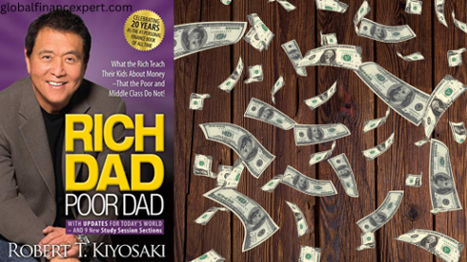
“Rich Dad Poor Dad” is a classic that has inspired many to rethink their approach to wealth and success. Kiyosaki shares his personal experiences growing up with two father figures, one rich and one poor, to impart timeless lessons on investing, entrepreneurship, and building wealth. This book challenges traditional beliefs about money and opens the door to a new mindset.
FAQs
What is the main message of “Rich Dad Poor Dad”?
The main message of the book is to challenge traditional views on money, investing, and wealth-building. It emphasizes the importance of financial education, asset-building, and adopting an entrepreneurial mindset to achieve financial success.
Is “Rich Dad Poor Dad” suitable for people of all income levels?
Yes, the book is designed to be applicable to individuals of various income levels. The principles and mindset shifts promoted by Kiyosaki can be applied by anyone seeking to improve their financial situation, regardless of their current income.
4. “The Millionaire Next Door” by Thomas J. Stanley and William D. Danko:
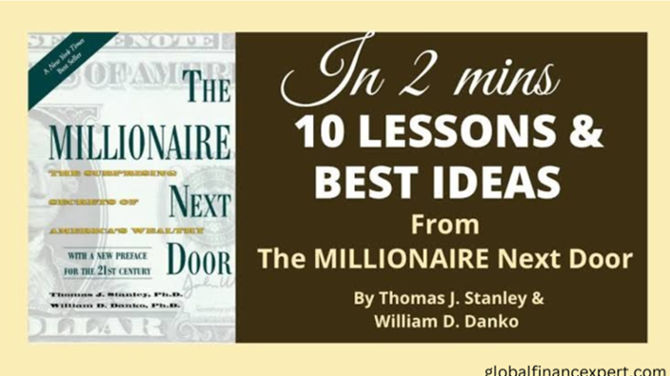
If you’ve ever wondered about the habits and lifestyles of millionaires, “The Millionaire Next Door” has the answers. Stanley and Danko’s research-based insights reveal that many millionaires live modestly, budget wisely, and prioritize saving. This eye-opening book provides practical strategies for achieving financial success without extravagant living.
FAQs
What is “The Millionaire Next Door” about?
“The Millionaire Next Door” explores the lifestyle and habits of ordinary individuals who accumulate wealth and become millionaires. The book challenges common perceptions of wealth and reveals that many millionaires live modestly and are diligent savers.
Does the book provide a definition of a millionaire?
Yes, the authors define a millionaire as someone whose net worth (assets minus liabilities) is at least one million dollars. The focus is not solely on income but on accumulated wealth.
5. “The Bogleheads’ Guide to Investing” by Taylor Larimore, Mel Lindauer, and Michael LeBoeuf:
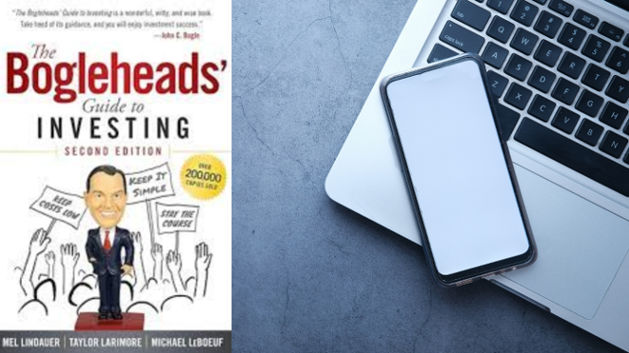
For those venturing into the world of investing, “The Bogleheads’ Guide to Investing” is an invaluable resource. Based on the principles of John C. Bogle, the book advocates for a low-cost, long-term investment strategy. It demystifies complex financial concepts, making it accessible for both novice and experienced investors.
FAQs
What is “The Bogleheads’ Guide to Investing” about?
“The Bogleheads’ Guide to Investing” is a book that outlines a set of investment principles and strategies based on the philosophy of John C. Bogle, the founder of Vanguard Group. It emphasizes low-cost index fund investing, diversification, and a long-term approach to wealth building.
What is the core philosophy promoted in the book?
The core philosophy of the book is centered around passive investing, specifically investing in low-cost index funds that track broad market indices. The Bogleheads believe in minimizing costs, maintaining a diversified portfolio, and holding investments for the long term.
6. “I Will Teach You to Be Rich” by Ramit Sethi:
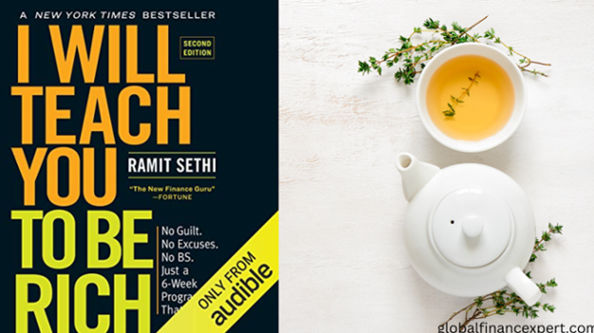
Ramit Sethi’s “I Will Teach You to Be Rich” is a comprehensive guide for young adults and professionals looking to automate their finances and make informed money decisions. Sethi provides a six-week program covering everything from saving and investing to negotiating a higher salary. His approach is practical, realistic, and tailored for the modern individual.
FAQs
What is “I Will Teach You to Be Rich” about?
“I Will Teach You to Be Rich” is a personal finance book by Ramit Sethi that provides a practical and comprehensive guide to managing money, investing, and creating a rich life. It covers topics such as budgeting, saving, investing, and automating financial systems
How does the book approach investing?
The book covers long-term investing strategies, including the importance of starting early and using automatic contributions. Sethi also discusses the benefits of low-cost index funds and provides a straightforward approach to building a diversified investment portfolio.
7. “The Richest Man in Babylon” by George S. Clason:

Transport yourself to ancient Babylon through the parables in “The Richest Man in Babylon.” George S. Clason imparts timeless financial wisdom through captivating stories, teaching fundamental principles of money management, such as saving, investing, and avoiding debt. The simplicity of the lessons makes them applicable in any era.
FAQs
What is the main lesson from the book?
The main lesson is the importance of saving and investing a portion of your income, living within your means, and making sound financial decisions to build wealth over time.
Is the advice in the book relevant today?
Yes, the advice in “The Richest Man in Babylon” is considered timeless and applicable to modern financial situations. The principles of saving, investing, and avoiding debt are fundamental to building wealth, regardless of the era.
8. “Women & Money” by Suze Orman:

Suze Orman’s “Women & Money” addresses the unique financial challenges faced by women. Covering topics like debt management, investing, and retirement planning, Orman empowers women to take control of their financial futures. The book provides practical advice and insights tailored to the specific needs of women in different life stages.
9. “The Little Book of Common Sense Investing” by John C. Bogle:
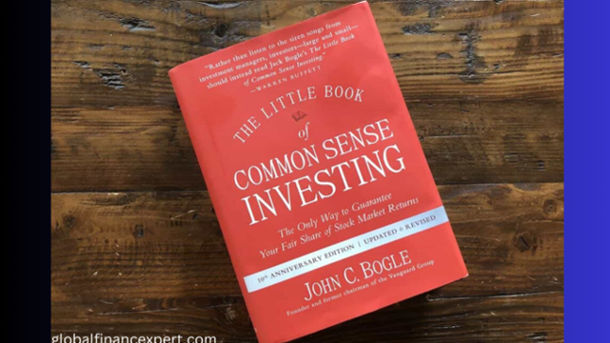
John C. Bogle, the founder of Vanguard Group, presents a compelling case for low-cost index fund investing in “The Little Book of Common Sense Investing.” Bogle’s straightforward approach advocates for simplicity and consistency in building wealth over the long term.
FAQs
What is the core message of the book?
The main message is that investors can achieve better returns over the long term by investing in low-cost, broad-market index funds rather than trying to beat the market through active stock picking or market timing.
Is the book suitable for beginners in investing?
Yes, “The Little Book of Common Sense Investing” is considered beginner-friendly. It explains investment concepts in a straightforward manner and provides a solid foundation for understanding the principles of long-term, low-cost investing.
How does the book address risk and diversification?
Bogle emphasizes the importance of diversification as a risk-management strategy. By investing in a broad market index, investors spread their risk across a large number of companies, reducing the impact of poor-performing individual stocks on their overall portfolio.
10. “Smart Women Finish Rich” by David Bach:
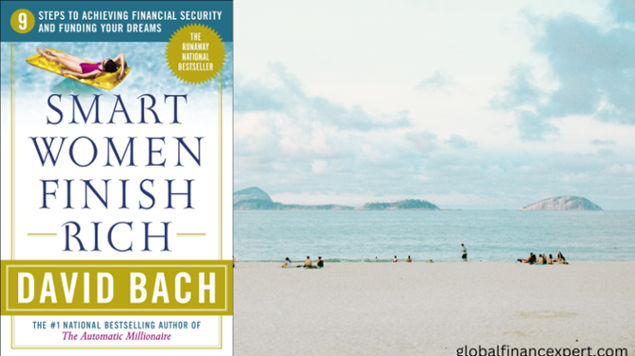
David Bach’s “Smart Women Finish Rich” is a financial guide designed specifically for women. Bach addresses the unique financial challenges and opportunities women encounter, offering actionable steps to achieve financial security and build wealth.
In conclusion, these personal finance books offer a wealth of knowledge to help you navigate the complexities of managing your money. Whether you’re looking to escape debt, invest wisely, or simply gain a better understanding of personal finance, these books serve as valuable companions on your journey to financial success. Dive into these pages, absorb the wisdom, and take charge of your financial destiny. Your wallet will thank you for it.
FAQs
What is “Smart Women Finish Rich” about?
“Smart Women Finish Rich” is a personal finance book by David Bach that aims to empower women to take control of their financial lives. It covers topics such as budgeting, investing, retirement planning, and building wealth with a focus on the unique financial challenges and opportunities women may face.
Does the book offer practical advice for budgeting?
Absolutely. “Smart Women Finish Rich” likely provides practical advice on budgeting, encouraging readers to create a budget that aligns with their financial goals and helps them take control of their spending and saving habits.
: Is there guidance on retirement planning?
Yes, “Smart Women Finish Rich” likely includes guidance on retirement planning, including strategies for saving for retirement, maximizing retirement accounts, and ensuring financial security in later years.
Are there tips for balancing career and family responsibilities in the book?
Yes, “Smart Women Finish Rich” may provide advice on finding a balance between career and family responsibilities. This could include strategies for managing time, finances, and career advancement while addressing family needs.

